(Christine Kao/Daily Bruin staff)
By Devon Whalen
March 1, 2022 at 10:41 p.m.
I spent my college search digging through schools’ dirty laundry. Not all of it, or even most of it. Just whatever had dropped into the transphobia hamper.
While my friends looked up the campuses and dorms of every school on their list, my Google search history was filled with page after page of “(school) transphobia” and “What is it like to be trans at (school).” In April 2020, after hours of investigating, I committed to a small Midwestern college with comforting search results for both.
In May 2020, I got into UCLA, a school that returned results like NBC’s “Controversy Over UCLA Students’ Anti-Transgender Bathroom Signs.” I found good stuff too – sites like Trans @ UCLA from the LGBTQ Campus Resource Center. But nothing I found put me at ease. After all, when I made the same searches about my high school, I found nothing worrying; yet, it was my experience there that had driven me to such vigilance.
In fact, what had me worried about UCLA wasn’t even what I had found – it was what I hadn’t. I hadn’t found anything written by trans UCLA students about being trans UCLA students.
At the college I had already committed to, I had talked to a trans guy about his experience. If I chose to attend, I knew I’d be safe, even happy. I couldn’t say the same for UCLA.
And yet, I write this from Westwood. That spring, my mom sat me down and made a spreadsheet comparing the two schools in all the typical areas: academics, location, history of transphobia, housing, et cetera. UCLA won out. Now that I’m here, I know it always should have.
Having become a trans UCLA student myself, I owe it to trans UCLA applicants to share my experience – and the experiences of other trans students while I’m at it.
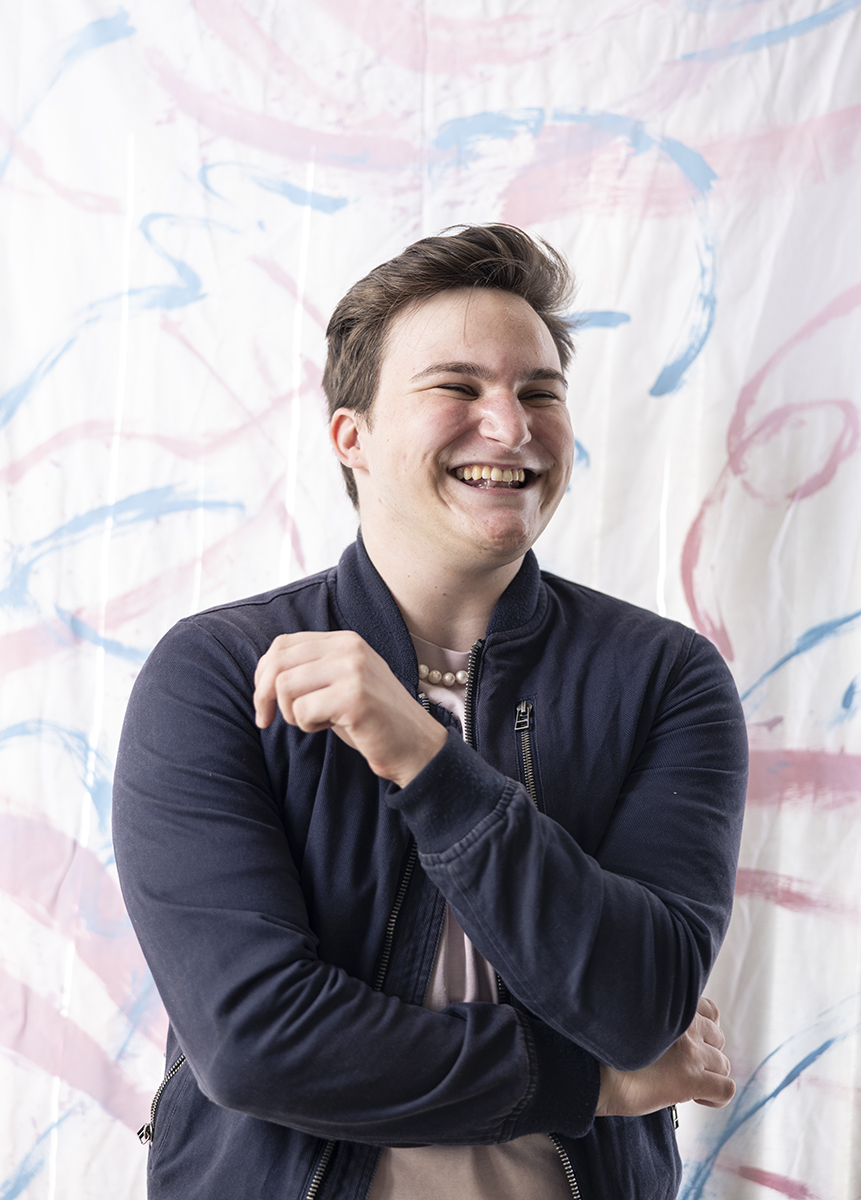
That’s why I reached out to G and Y, two members of Transgender UCLA Pride.
It’s a bit of a running joke in the nonbinary community that we choose odd names for ourselves, but “G” and “Y” aren’t examples of that – they’re last initials. G and Y requested anonymity because they aren’t fully out to or accepted by their respective families.
I spent an hour with G and Y on Zoom; they called from separate rooms of the apartment they share.
G is genderfluid and a third-year psychology student. They’re an out-of-stater, like me. They’re nonbinary but tend to lean towards masculinity, like me. They let their shoulders fall into a hunch in their little Zoom window, like me.
“What are both your pronouns?” I asked, addressing both G and Y, but neither in particular. The call had only just started; we were still in that uncomfortable hushed beginning.
“They/them,” G said after a beat. Their answer was soft; it felt almost automatic.
I started to move on to Y.
“Oh, wait!” G said, interrupting. “Actually, I totally forgot. It’s they/he.”
I smiled.
“I feel that,” I said.
I did; it had taken a solid few months to get used to “he” meaning me.
“I made that switch like a year ago,” I said, laughing. G and Y both gave small soundless smiles, but their microphone icons remained unblinkingly red.
“She/they,” Y said, quietly rescuing us all from Zoom silence.
Y is a third-year student too. They’re a nonbinary trans woman studying education and psychology. She described herself as about 80% of the way along in her transition, a number I’m frankly still in awe of, since she came out as trans her freshman year at UCLA. God, if only 15-year old me knew I’d end up somewhere you could progress so much in just two years.
I began publicly presenting as trans my freshman year, too, just not my freshman year of college. And two years into my transition, I was far from 80%. I’d only just started dressing masculinely full-time; I wouldn’t make it off the waitlist for a hormone therapy consultation for at least another year and getting misgendered was less a daily occurrence and more an hourly one. I knew where I was headed, though. I knew the end goal.
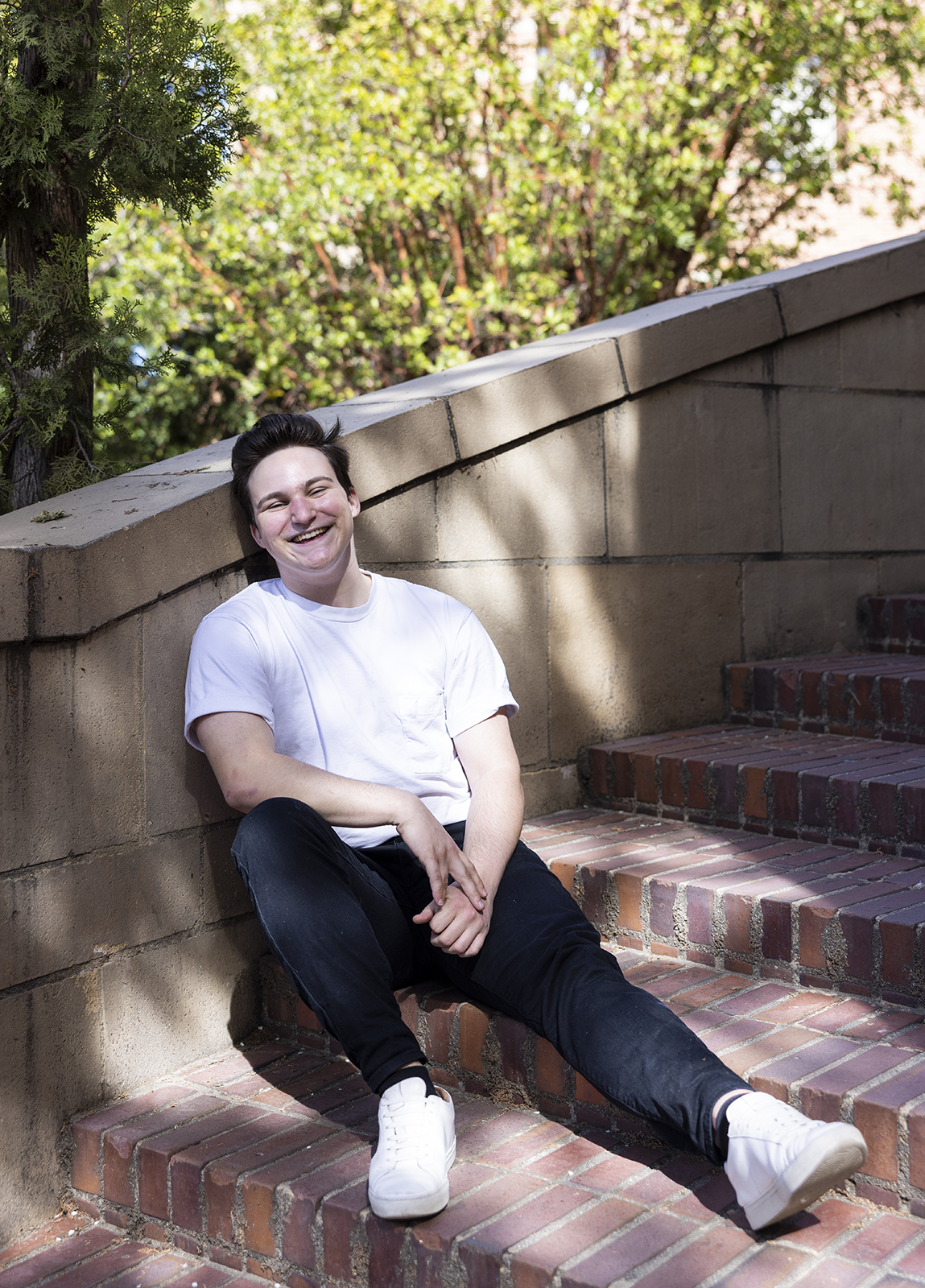
“I hope, one day, to forget. To forget the pain, sure, but to forget that I am transgender altogether. Not to stop being trans, or deny it – I am not so unkind to myself as to erase my identity. I would just like to forget for a moment.”
I wrote that in winter 2019. I probably typed those words from my bed, slouching into my gray checkered comforter. I’d have been ignoring the mess I’d have to answer for come Sunday room inspection, ignoring voices outside my door, maybe – a dorm full of 40 teenage girls is rarely a quiet place.
That little written wish was for a class colloquially called Nonfictions – the only non-elective English class at my high school centered on writing. One time, my classmates gushed about another student’s 4,000 word feature on the acceptability of offensiveness in standup comedy, lauding the visceral effectiveness of the transphobic jokes she provided as examples. They gushed about my memoir, too, particularly touched by the passage the above excerpt came from. I don’t know if they understood that hearing them praise transphobia was part of the pain I wanted to forget.
I didn’t make a stand or educate them; I’d long since learned those conversations drained and hurt me far more than they helped anyone else. I left and did nothing. For someone whose reputation consisted mostly of their transness, I did that a lot. I’d go back to the girls’ dorm and do nothing, listen to the student body president announce my deadname and do nothing, be misgendered and mocked and do nothing. Nothing is an exhausting thing to do.
The fear of doing nothing for four more years defined my college search from the start.
This was not the case for everyone, though; G and Y certainly had different experiences. Before they became Bruins, they hadn’t looked into UCLA’s resources for trans people, they said. They were only fierce allies at the time, like so many trans people are just before the realization hits.
Once on campus, Y said she began thinking about her identity in earnest and grew more and more eager to start exploring it with others like her. But fear and uncertainty got the better of them for a while.
“I remember being absolutely terrified to walk into the LGBTQ center,” Y said. “I knew they had drop-in therapy hours, and I knew I needed it. But I remember walking in there multiple times during those hours and trying to get myself to go to that door – and then just not being able to.”
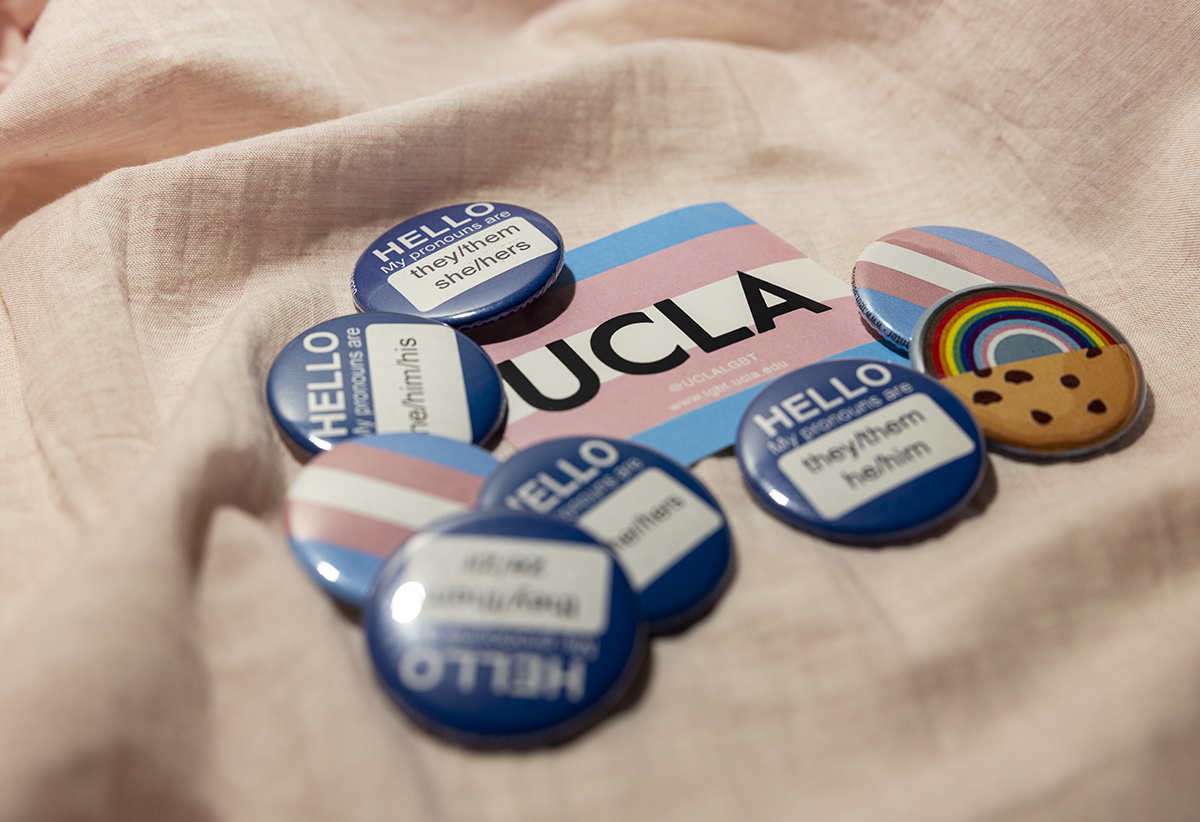
Eventually they made it there, and they said they found a supportive group of friends on the other side – G among them. At the time, G said, he was in the midst of what he described as his “hot girl era,” a high-femme phase that once took hold of me in just the same way. Y said she began spending more and more time in the Gender, Sexuality and Society Living Learning Community where G lived.
“When I visited the GSS floor … I was able to try on a dress for the first time or put on makeup,” Y told me. “It really felt like a safe space for me to exist and explore.”
Y soon turned from visitor to resident, moving into G’s room during winter quarter. That same winter, she came out as trans, first in the form of a final paper turned into a philosophy professor, whom she said was probably very confused by the admission, but then to friends – and to G.
“She came out as trans, … and I was thinking about gender, but I was scared,” G told me, small laughter breaking up their sentences. “I was kind of like, ‘But it’s (Y’s) turn to be trans! I need to wait my turn; it’s her moment!’”
When the COVID-19 pandemic hit, G and Y spent hours upon hours lying in their beds during quarantine, exchanging DMs on Instagram. G said that with little else to do but consider their identity, they began moving towards the closet door.
“I had my fun little ‘gender dysphoria, thinking about gender’ times constantly during quarantine. Eventually I came out to my friends, and to (Y),” G said. “I was scared, because I was like, ‘(Y) is like, a legit trans person, and I’m just confused.’ But it was really great.”
I heard their voice brighten.
“And then we started calling more and talking about gender,” they said. “I was able to explore my gender and really relate to her. That helped a lot. I felt very validated.”
Talking about gender turned to talking, G and Y said, just plain talking for hours each night until the sleeplessness hurt.
I can’t say I was surprised when G said that the two had been dating ever since. But I was happy. I was happy to see two trans people happy, happy to hear how Y drew G into TransUP soon after and happy to realize they saw the club as a light in their lives rather than a target on their backs.
But I was sad to be faced with the happiness I’ve missed out on.
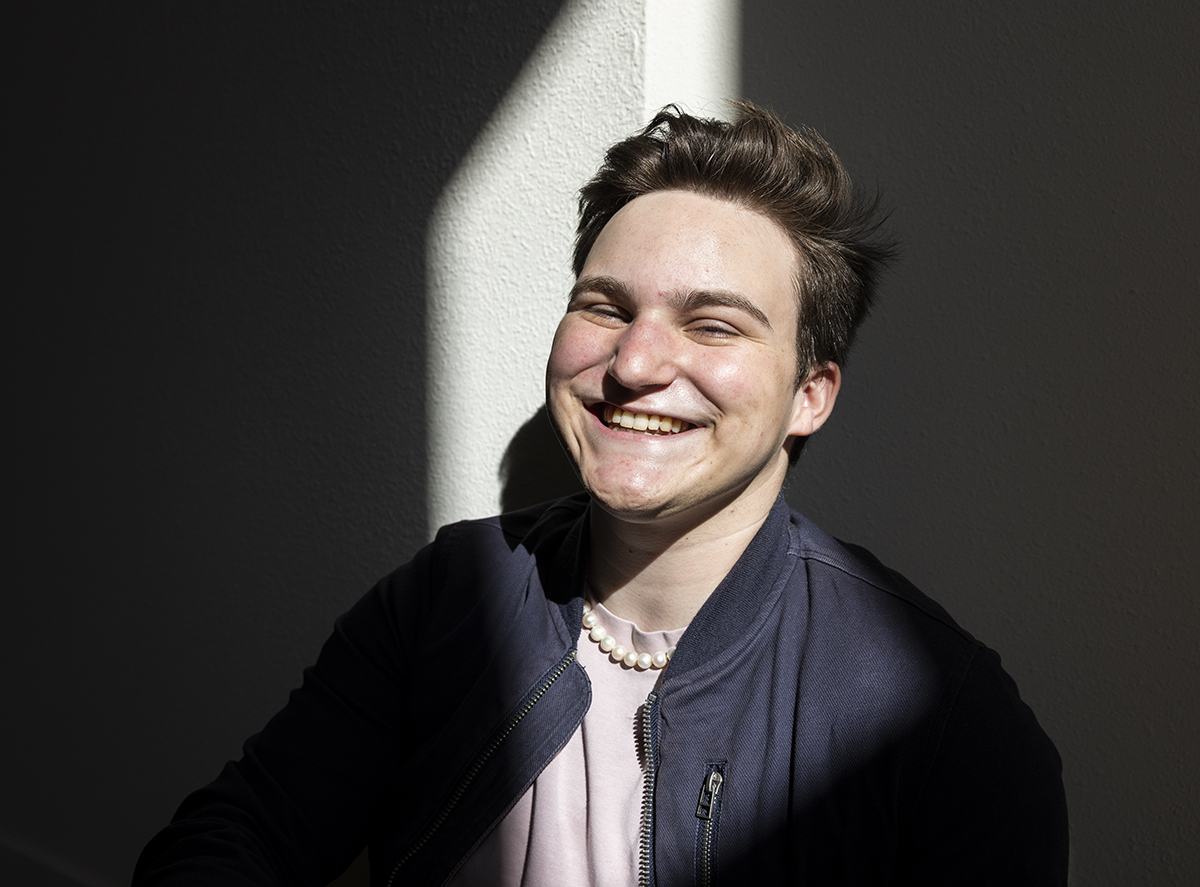
My first quarter on campus, I strode past the LGBTQ+ booths at the activities fair with such speed and disdain that it could well have been mistaken for homophobia. I’d done my time in similar clubs in high school; I knew what membership meant – a scrawled note reading “Pigeonhole me!” slapped on my back. Scorning my spot in that community felt so easy, so right.
High school taught me that to be trans is to face transphobia and do nothing in response. UCLA took out of my daily life the vast majority of the transphobia I’d faced before, so responding with nothing was a natural occurrence rather than a forced concession. That natural nothing felt so dear. But joining trans organizations and seeking out trans friends, that isn’t doing nothing. That is real action, and I could not bring myself to take it. I treasured nothing too much to let it go.
At UCLA, I wake up each day to nothing. I don’t live in a girls’ dorm here; girls’ dorms don’t exist. I selected a little box labeled “gender inclusive housing” when I submitted my housing application, and that was that. Saying I live in Sproul Cove does not advertise femininity the way saying I lived in Millet House did. It’s one less thought crossing my mind when I meet someone and one less way the world outs me – one more precious piece of nothing.
For G and Y, dorm life was more than nothing. They told me that on the GSS floor, they found community; they found acceptance. They found a space filled with queer people, something that’s absurdly rare in this world, and they found that they belonged among them. They described how G found gender euphoria in his first button-down, Y in her first dress. I can’t help but think the floor gave them a beautiful something.
When I need health care, I’m met with nothing in the way. I don’t have to take the bus to Ashmont, the red line to South Station and the sidewalk to the big gold building on Kneeland Street with the little youth clinic on the second floor. I miss that trek sometimes: the independence of pushing through the Boston cold alone.
But here it’s a sun-soaked seven minute walk from the Hill to my doctor at Ashe, and a 40-second skip from Ashe to the pharmacy in Ackerman. Here, healthcare is getting to take my hormones as scheduled rather than rationing between refills. It’s UCSHIP-covered fertility preservation and voice training, and it’s having the right name on my medical records. It’s the presence of my friends down the hall who I know will press the blue plastic button on my autoinjector when I’m scared.
I’ve been forced to fight for gender-affirming care countless times, spending hours on hold and months on waitlists. I’m battle-hardened with the documentation to prove it. At UCLA, there is nothing to fight. At UCLA, I lay my weapons down.
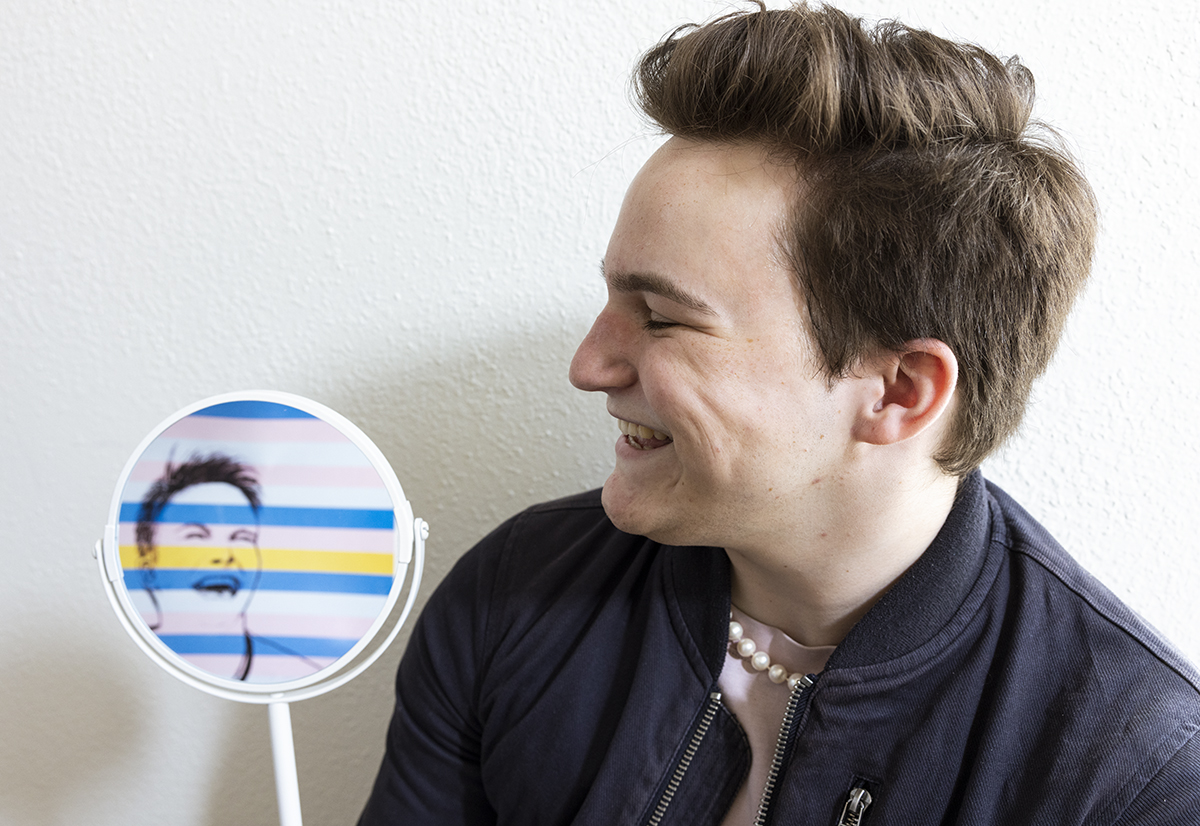
I haven’t sparred with any transphobic classmates here, either. I came ready to; I thought it was coming when my roommate learned I was trans in November. It didn’t. How much energy I wasted in the fall, looking around corners for the transphobic boogeyman, finding nothing.
I came to UCLA determined not to be known first and foremost as a trans person. I didn’t hate being trans, and I didn’t want to change, but I knew transness was the root of so many unnecessary problems the world created for me. I came to Westwood ready to put identity on the back burner. If transphobia was no longer part of my daily life, I thought, then transness wouldn’t be either. It could, at best, be something I forgot.
I do forget. For 17-year-old Devon, sitting in that girls’ dorm and dreaming of forgetting, I am happy to. But my dreams have changed; I don’t have to shun transness to be free of transphobia or dysphoria.
I jumped at the chance to shun it coming to UCLA because the world had never let me. But I was wrong – transness can be something more than nothingness where pain used to be. I’ve seen that in G and Y. Transmasculinity still isn’t all of me, and I don’t want it to be. But I want trans friends; I want a trans community.
I want, for the first time, to choose transness for myself, to approach it with love and let it settle comfortably down.
“If you had known that you were trans when you were making your college decision, would you still have chosen to come to UCLA – knowing how the experience has been here?” I asked over Zoom, my time with G and Y quickly running out.
“Yeah,” G said, not a trace of hesitation in their voice. “Absolutely.”
I would too.
Despite the negative Google search results, despite the rare instances of transphobia that still find me, despite every con my mother put on that spreadsheet two years ago – I would.
